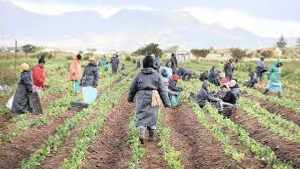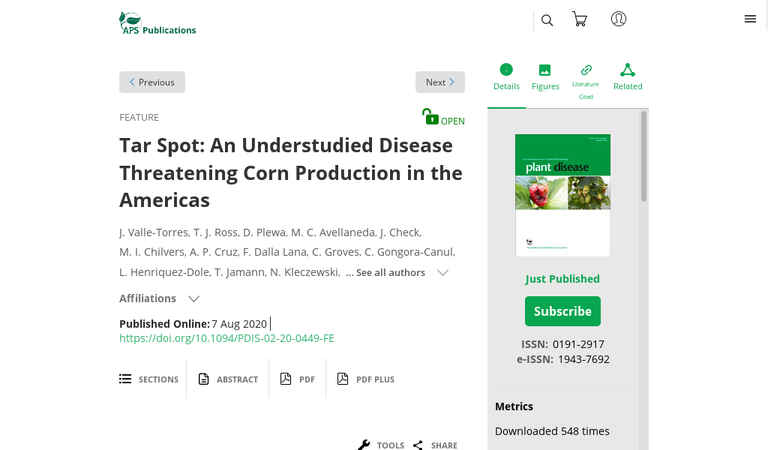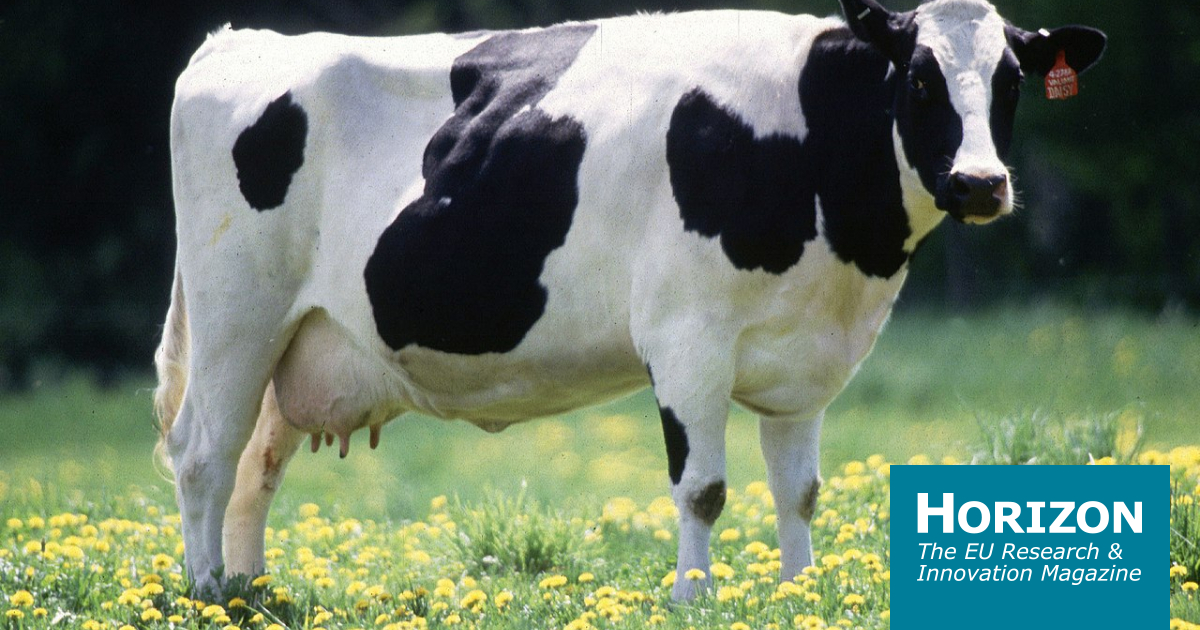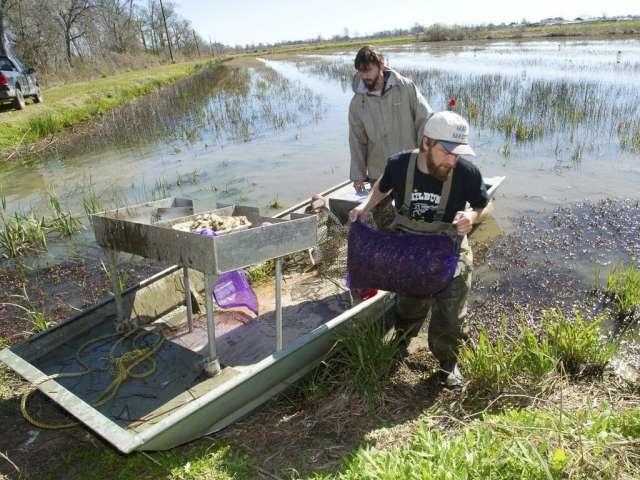 John LaRose Jr.
John LaRose Jr.
Topics: Economics, Sustainability, Research, Ag Innovation, World Hunger, Renewable Energy (Solar/Wind),
Researchers Discover Method to Produce Plastics Without Using Fossil Fuels
Researchers have identified a formerly unknown method through which certain bacteria create the chemical ethylene—a discovery that could pave the way for producing plastics without using fossil fuels.
-
(1)
-
Bookmark
- Comments (0)
 John LaRose Jr.
John LaRose Jr.
Topics: Economics, World Hunger, Ag Africa, World Population, Coronavirus/COVID,
All economic sectors in negative growth for Q2, except agriculture
President Ramaphosa said this decrease in GDP reflected the severe impact of the global coronavirus pandemic on the economy and should spur all South Africans to do all they can to help rebuild the economy.
-
(1)
-
Bookmark
- Comments (0)
 Nancy Kavazanjian
Nancy Kavazanjian
Topics: Corn/Maize, Soybeans, Economics,
Agricultural Economic Insights | Early Yield Forecast Errors
Between derecho and dryness, there have been many questions about 2020 yields. This week’s post reviews USDA yield forecasts errors for corn and soybeans.
-
(0)
-
Bookmark
- Comments (0)
 John LaRose Jr.
John LaRose Jr.
Topics: Corn/Maize, Economics, Sustainability, Crop Diseases, Research, World Hunger, World Population,
Tar Spot: An Understudied Disease Threatening Corn Production in the Americas
Tar spot of corn has been a major foliar disease in several Latin American countries since 1904. In 2015, tar spot was first documented in the United States and has led to significant yield losses ...
-
(0)
-
Bookmark
- Comments (0)
 John LaRose Jr.
John LaRose Jr.
Topics: Soil Health, Precision AG , Water, Economics, Research, World Hunger, World Population, Regenerative Agriculture,
Marlborough's gravelly soil could provide new understanding of liquefaction
Liquefaction research at Blenheim’s home of rugby could be a game-changer for Wellington’s waterfront and further afield.
-
(0)
-
Bookmark
- Comments (0)
 John LaRose Jr.
John LaRose Jr.
Topics: Conservation/Tillage, Water, Economics, Sustainability, Aquaculture/Fish Farming, Research, World Hunger, Government / Policies, World Population, Regenerative Agriculture,
100 Opportunities for More Inclusive Ocean Research: Cross-Disciplinary Research Questions for Sustainable Ocean Governance and Management
In order to inform decision making and policy, research to address sustainability challenges requires cross-disciplinary approaches that are co-created with a wide and inclusive diversity of disciplines and stakeholders. As the UN Decade of Ocean Science for Sustainable Development approaches, it is therefore timely to take stock of the global range of cross-disciplinary questions to inform the development of policies to restore and sustain ocean health. We synthesized questions from major science and policy horizon scanning exercises, identifying 89 questions with relevance for ocean policy and governance. We then scanned the broad ocean science literature to examine issues potentially missed in the horizon scans and supplemented the horizon scan outcome with 11 additional questions. This resulted in an unprioritized list of 100 general questions that would require a cross-disciplinary approach to inform policy. The questions fell into broad categories including: coastal and marine environmental change, managing ocean activities, governance for sustainable oceans, ocean value, and technological and socio-economic innovation. Each question can be customized by ecosystem, region, scale, and socio-political context, and is intended to inspire discussions of salient cross-disciplinary research directions to direct scientific research that will inform policies. Governance and management responses to these questions will best be informed by drawing upon a diversity of natural a...
-
(0)
-
Bookmark
- Comments (0)
 John LaRose Jr.
John LaRose Jr.
Topics: Dairy, Water, Economics, Sustainability, Research, Ag Europe, Regenerative Agriculture,
Dairy waste is being turned into bioplastics and plant food
Dairies in Europe are major economic drivers in rural areas, but they produce significant waste from cleaning and processing. Wastewater and milk residue, which are typically disposed of, are now
-
(0)
-
Bookmark
- Comments (0)
 John LaRose Jr.
John LaRose Jr.
Topics: Precision AG , Education U.S. NorthEast, Beekeeping, Economics, Sustainability, World Hunger, World Population,
Bee neighborly — sharing bees helps more farmers
Benefits of cost-sharing the conservation of wild bee habitats with farmers can help overcome the tragedy of the commons
-
(0)
-
Bookmark
- Comments (0)
 John LaRose Jr.
John LaRose Jr.
Topics: Corn/Maize, Soybeans, Commodities, Economics, Ag North America,
Area corn and soybean crops pulling through despite hot, dry summer
After the mostly hot and dry summer months, new projections show Ontario corn yields are expected to increase slightly from 2019 levels, although soybean yields are expected to take a hit.
-
(0)
-
Bookmark
- Comments (0)
09/07/2020 SOURCE: www.newsbreak.com
The life cycle of a crawfish can be fairly straight forward. In the summer months, crawfish reproduce in underground mud burrows with a plug of mud on top of the burrow to protect them from predators. In late summer and early fall, rain softens the mud plugs so the crawfish can push their way out of the burrows and enter ponds, where they feed, molt and grow throughout Louisiana's typically mild winters. Spring then brings crawfish harvest season.
How weather affects crawfish harvests | News Break
-
(0)
-
Bookmark
- Comments. (0)












